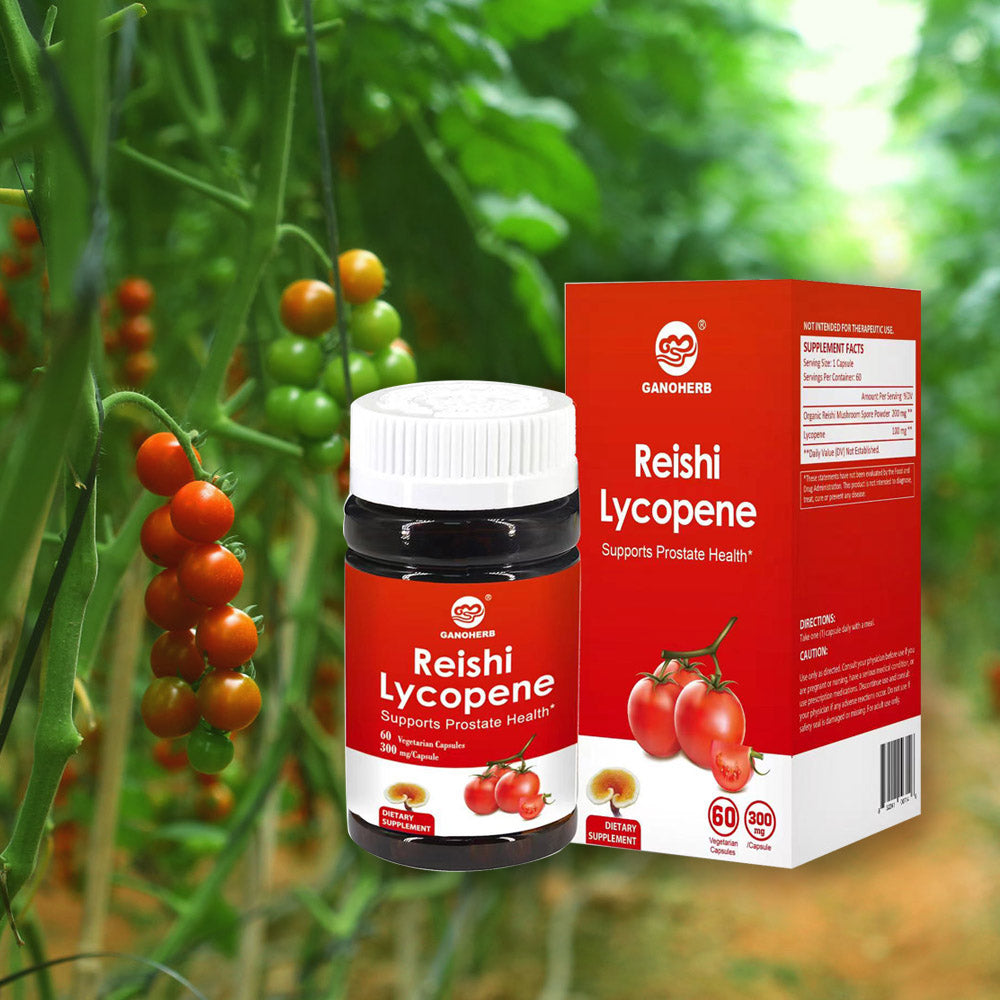5 Things You Need to Know About Mushroom Based Coffee: What Makes It Stand Out?
Have you ever stumbled upon the term mushroom based coffee and wondered what it's all about? This unique beverage has been making waves in the world of alternative drinks, blending the familiar comfort of coffee with the earthy notes of mushrooms. Unlike traditional coffee, mushroom based coffee offers a distinct experience that appeals to those seeking something different. In this article, we'll dive into five key aspects of mushroom based coffee, from its composition to its rising popularity. Whether you're a curious coffee lover or someone exploring new trends, this guide will provide a comprehensive look at what sets mushroom based coffee apart. Let's explore the essentials without any fluff, focusing on the facts that matter.

What Exactly Is Mushroom Based Coffee?
Mushroom based coffee is a beverage that combines regular coffee beans with extracts or powders derived from various types of mushrooms. Typically, mushrooms like chaga, lion's mane, or reishi are used, but the focus here is on their culinary and sensory attributes rather than any functional properties. The result is a drink that maintains the rich, aromatic qualities of coffee while introducing subtle, earthy undertones from the mushrooms. This blend is often available in instant forms, ground mixes, or capsules, making it accessible for daily use. The concept behind mushroom based coffee is to create a harmonious fusion that appeals to those who enjoy experimenting with flavors. It's not about replacing traditional coffee but offering an alternative that stands on its own merits. As more people discover mushroom based coffee, it's becoming a staple in kitchens and cafes alike, reflecting a growing interest in innovative food and drink combinations.
The Production Process of Mushroom Based Coffee
The creation of mushroom based coffee involves several meticulous steps to ensure a balanced and consistent product. First, mushrooms are carefully selected and harvested, often from controlled environments to maintain quality. They undergo a drying process, which can include air-drying or low-temperature dehydration to preserve their natural characteristics. Once dried, the mushrooms are ground into a fine powder or processed to extract their essences. This mushroom component is then blended with roasted coffee beans, which are ground to a similar consistency. The ratio of coffee to mushroom can vary, with some blends emphasizing a stronger coffee presence and others highlighting the mushroom notes. Manufacturers often use techniques like dual-extraction to integrate the flavors seamlessly, resulting in a smooth, unified product. Packaging is designed to protect the integrity of the blend, often in airtight containers to maintain freshness. This attention to detail in production ensures that every cup of mushroom based coffee delivers a consistent experience, making it a reliable choice for daily consumption.
Flavor Profile and Sensory Experience
When it comes to taste, mushroom based coffee offers a unique sensory journey that distinguishes it from traditional coffee. The initial sip often reveals the familiar robustness of coffee, with its deep, roasted notes and slight bitterness. However, the mushroom elements introduce an earthy, umami-like quality that can soften the overall flavor, reducing any harsh edges. Depending on the mushroom variety used, you might detect hints of woodiness or a mild, nutty undertone. For instance, chaga-based blends tend to have a slightly sweet, vanilla-like aroma, while reishi-infused versions might bring a more bitter, herbal note. The texture is typically smooth and less acidic than regular coffee, which can make it appealing to those with sensitive palates. Many enthusiasts describe mushroom based coffee as having a rounded flavor that lingers pleasantly. It's a beverage that invites slow sipping and appreciation, much like a fine tea or specialty brew. This complexity in flavor makes mushroom based coffee a versatile option that can be enjoyed black or with additions like milk and sweeteners.

Cultural and Historical Context
Mushroom based coffee might seem like a modern invention, but its roots trace back to cultural practices where mushrooms were valued in traditional beverages. In various regions, mushrooms have long been incorporated into drinks for their unique flavors and cultural significance, often in herbal teas or tonics. For example, in parts of Eastern Europe and Asia, mushrooms like chaga were brewed into simple infusions as part of daily rituals. The integration with coffee, however, is a more recent development, emerging from the fusion food movement that seeks to blend diverse culinary traditions. This evolution reflects a broader trend of globalization in food culture, where ingredients from different backgrounds are combined to create novel experiences. Today, mushroom based coffee is embraced in urban centers and wellness circles as a symbol of innovation, though it's important to note that its appeal lies in its cultural richness rather than any historical claims. This background adds depth to the beverage, making it more than just a trend but a reflection of how food and drink evolve over time.
Sustainability and Environmental Considerations
One of the compelling aspects of mushroom based coffee is its potential alignment with sustainable practices. Mushrooms, in general, are known for their efficient growth cycles, often requiring less land and water compared to traditional crops like coffee plants. Many mushrooms used in these blends, such as oyster or shiitake, can be cultivated on agricultural waste products, contributing to a circular economy. This reduces the environmental footprint and supports eco-friendly farming methods. Additionally, the coffee industry faces challenges like deforestation and pesticide use, but by blending with mushrooms, producers can sometimes source from more sustainable coffee farms that prioritize shade-growing or organic techniques. The production of mushroom based coffee often involves efforts to minimize waste, such as using whole mushrooms and optimizing energy during processing. As consumers become more environmentally conscious, the appeal of mushroom based coffee grows, not just for its taste but for its role in promoting responsible consumption. This aspect makes it a choice that resonates with those who value ecological balance in their daily routines.
Market Trends and Consumer Adoption
The rise of mushroom based coffee is closely tied to shifting consumer preferences and market dynamics. In recent years, there has been a surge in interest for alternative beverages, driven by a desire for variety and novelty. Mushroom based coffee fits neatly into this trend, offering a distinct option that stands out in a crowded market. It's particularly popular among millennials and Gen Z, who often seek out unique products that align with a lifestyle of exploration and mindfulness. Social media and digital marketing have played a significant role in spreading awareness, with influencers and bloggers sharing their experiences with mushroom based coffee. Retailers have responded by expanding their offerings, making it available in supermarkets, online stores, and specialty shops. The affordability and convenience of mushroom based coffee, such as single-serve packets or subscription services, have also fueled its adoption. This beverage isn't just a passing fad; it's part of a broader movement toward personalized consumption, where people curate their diets based on taste, ethics, and experience. As the market for mushroom based coffee continues to grow, it's likely to inspire further innovations and variations.
How to Prepare and Enjoy Mushroom Based Coffee
Preparing mushroom based coffee is straightforward and similar to making regular coffee, which adds to its appeal. You can use standard methods like drip brewing, French press, or instant mixing, depending on the product form. For a basic cup, simply add a teaspoon of the mushroom based coffee blend to hot water and stir until dissolved. Many people enjoy it black to fully appreciate the flavor nuances, but it also pairs well with milk, cream, or plant-based alternatives like almond or oat milk. Sweeteners such as honey or maple syrup can enhance the natural notes without overpowering the blend. Some enthusiasts experiment with adding spices like cinnamon or cocoa to create custom drinks, making mushroom based coffee a versatile base for creativity. Storage is simple—keep it in a cool, dry place to maintain freshness. Whether you're starting your day or taking a break, mushroom based coffee offers a comforting ritual that fits seamlessly into various lifestyles. Its ease of preparation makes it accessible to beginners and coffee aficionados alike, encouraging more people to give it a try.
Comparing Mushroom Based Coffee to Other Beverages
When stacked against other drinks, mushroom based coffee holds its own with a unique set of characteristics. Unlike traditional coffee, which is prized for its bold caffeine kick and sharp acidity, mushroom based coffee tends to be smoother and more mellow. This can make it a preferable option for those who find regular coffee too intense. Compared to herbal teas, mushroom based coffee retains the familiar coffee flavor while adding depth from the mushrooms, whereas teas might lack that roasted element. Energy drinks often rely on synthetic additives and high sugar content, but mushroom based coffee typically uses natural ingredients, appealing to those seeking simpler compositions. Even against other mushroom-based beverages like broths or tonics, mushroom based coffee stands out due to its coffee base, which provides a comforting, warm experience. This comparison highlights how mushroom based coffee occupies a niche that blends the best of multiple worlds, offering a balanced alternative that doesn't sacrifice flavor or convenience. It's a testament to how innovation in the beverage industry can cater to diverse tastes and preferences.
Frequently Asked Questions About Mushroom Based Coffee
Q1: What is mushroom based coffee made from?
A1: Mushroom based coffee is typically made from a blend of roasted coffee beans and extracts or powders from edible mushrooms, such as chaga, lion's mane, or reishi. The mushrooms are processed to integrate their flavors with the coffee, resulting in a unified beverage.
Q2: Does mushroom based coffee taste like mushrooms?
A2: While mushroom based coffee has earthy undertones from the mushrooms, the primary flavor often remains coffee-like. The mushroom elements can add a subtle, umami quality that complements the roast, making it less bitter and smoother than traditional coffee.
Q3: How do I store mushroom based coffee to keep it fresh?
A3: Store mushroom based coffee in an airtight container in a cool, dry place away from direct sunlight. This helps preserve its flavor and prevents moisture from affecting the blend, ensuring it stays fresh for several months.
Q4: Can I use mushroom based coffee in recipes instead of regular coffee?
A4: Yes, mushroom based coffee can be used in various recipes, such as baked goods, smoothies, or sauces, where you'd typically use coffee. It adds a unique flavor twist, but be mindful of the mushroom notes blending with other ingredients.
Q5: Is mushroom based coffee suitable for people who are new to alternative beverages?
A5: Absolutely! Mushroom based coffee is designed to be approachable, with a flavor profile that bridges familiar coffee tastes with new elements. Start with a small amount to see how you like it, and adjust based on your preference.
In summary, mushroom based coffee is a fascinating beverage that brings together the worlds of coffee and mushrooms in a way that's both innovative and accessible. From its production and flavor to its cultural and environmental aspects, there's much to appreciate about this unique drink. As you explore mushroom based coffee, remember that it's all about personal taste and experience—whether you're sipping it for the first time or making it a daily habit.











